|
Christian
Media
Communiqué
DEAD MEN'S BONES
Part IX
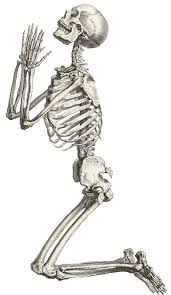
Before Solomon began to fall away from the ways of the LORD, and integrated the worship of the various Gentile deities into the temple he had built, he saw himself as the prophesied Son of David who would bring the glory of God to the entire world. His kingdom was the wealthiest in the world at the time, and his temple was the most magnificent temple ever built. As most know, he was considered the wisest man in the world.
"So king Solomon exceeded all the kings of the earth for riches and for wisdom" (I Kings 10:23).
It seemed obvious that the prophecy given to his father David, wherein the prophet Nathan said that David's Son would sit on the throne of Israel forever, applied to him. For instance, when David was at the peak of his kingdom (and desired to build a temple for the LORD), God dispatched Nathan to tell Him it would be David's Son who was to build the great temple:
"I will raise up thy seed after thee, which shall be of thy sons; and I will establish his kingdom. He shall build me an house, and I will stablish his throne forever" (I Chronicles 17:11, 12).
The adjacent heathen religious traditions were in place in the Gentile nations surrounding Israel long before Solomon, as evidenced by place names in time periods preceding Solomon's generation. For instance, hundreds of years earlier, as the Israelites were fleeing the Egyptians in the great Exodus, the LORD told Moses the specific escape route He desired His chosen to use.
"Speak unto the children of Israel, that they turn and encamp before Pi-hahiroth, between Migdol and the sea, over against Baal-zephon" (Exodus14:2).
The name "Zephon" is a rough equivalent of the Hebrew term for the North, and the compound name links the term to a religious site associated with the devilish deity Baal. Since this was about 1550 BC (over 500 years before Solomon), we can see some form of the veneration of Baal was already in place. This is no surprise, since the Egyptians, who had kept the Hebrews in slavery for 430 years, had their various gods as well. We would do well to remember the words of the prophet Amos, who mentioned the heathen gods Moloch and Chiun, that the Israelites honoured during their days in the wilderness – again, hundreds of years before the days of Solomon.
"In the wilderness forty years, O house of Israel…ye have borne the tabernacle of your Moloch and Chiun your images, the star of your god, which ye made to yourselves" (Amos 5:25, 26).
The point is, when Solomon built his magnificent temple, he was certainly aware of the various deities of the nations surrounding Israel; but Solomon was also aware of the LORD's call to Israel informing them that He had chosen them to be a nation set above all other nations.
"For thou art an holy people unto the Lord thy God: the LORD thy God hath chosen thee to be a special people unto himself, above all people that are upon the face of the earth" (Deuteronomy 7:6).
As we've shown, the role of the mediator between God and those who are apart from Him is repeatedly seen as Israel. To repeat, the prophets tell us that Israel was the agent between the LORD and the rest of the nations. Recognition of this triune architecture in the LORD's redemptive plan, is crucial in understanding why God chose a people who would interface between Him and the Gentiles.
"…thou, Israel, art my servant, Jacob whom I have chosen, the seed of Abraham my friend. I the Lord have called thee in righteousness, and will hold thine hand, and will keep thee, and give thee for a covenant of the people, for a light of the Gentiles" (Isaiah 41:8, 42:6).
If we approach this alignment with simple logic, it's not difficult to see the dark presence which opposes God's agenda, would be arrayed against the LORD's servant Israel. From the Egyptians who sought to retain the servitude of the Israelites, to the various tribes that consistently warred against the young nation, conflict was predictable. To rephrase that thought, if the devils could destroy Israel, the Lord's chosen would not be able to fulfill their role as God's emissary to the much larger body of humanity.
The epitome of this clash was seen in the tumultuous military victories of David. This fact was recounted by the LORD when King David purposed to build a great temple for his God.
"I took thee from the sheepcote, from following the sheep, to be ruler over my people, over Israel: and I was with thee whithersoever thou wentest, and have cut off all thine enemies out of thy sight" (II Samuel 7:8).
As we learn from David's colorful history, when he remained in accord with the Spirit of the LORD, he was unbeatable. David's cumulative victories, in which he acquired the wealth of those he had vanquished (in addition to the tribute he received from other nations that yielded to him), created the most dynamic power of the time. Thus, David determined it was time to put that enormous wealth to work, and build a great temple for the LORD.
The temple would be his crowning achievement, and it would become an integral part of the glorious story of God, which would be consistent with Israel's calling as the nation which represented the LORD to the rest of the world. Instead of the LORD meeting Israel in a tent (known as the tabernacle), David would build a permanent dwelling place for God. However, the LORD God almighty is above and beyond the constraints of time. As He responded to David's intent to build Him a temple, He looked far into the future at the eternal temple, which the New Testament tells us is the body of Jesus Christ.
"I am God…declaring the end from the beginning, and from ancient times the things that are not yet done" (Isaiah 46:10).
Interacting with King David in 1,000 BC, the LORD could see David's distant descendant Jesus Christ (David's "Son"), and the body of Christian believers who form the heavenly temple, and the city of New Jerusalem.
"And I John saw the holy city, New Jerusalem, coming down from God out of heaven, prepared as a bride adorned for her husband. Behold, the tabernacle of God is with men, and he will dwell with them, and they shall be his people, and God himself shall be with them, and be their God"
"Ye are the temple of the living God; as God hath said, I will dwell in them, and walk in them; and I will be their God, and they shall be my people" (Revelation 21:2, 3; II Corinthians 6:16).
Thus, the LORD told David that the great king would not build a temple for Him, but God would build a house for David, through the person of David's Son – and "David's Son" would sit on the throne of that temple forever.
"Also the Lord telleth thee that he will make thee an house. And when thy days be fulfilled, and thou shalt sleep with thy fathers, I will set up thy seed after thee, which shall proceed out of thy bowels, and I will establish his kingdom. He shall build an house for my name, and I will stablish the throne of his kingdom for ever. I will be his father, and he shall be my son" (II Samuel 7:11-14).
The New Testament clearly informs us Jesus is a direct descendant of David, and it is self evident the people of Judaea took the Old Testament statements concerning the temple to be a Messianic prophecy, for they repeatedly called Christ the Son of David.
"The book of the generation of Jesus Christ, the son of David" (Matthew 1:1).
"And when Jesus departed thence, two blind men followed him, crying, and saying Thou Son of David, have mercy on us" (Matthew 9:27).
"And all the people were amazed, and said, Is not this the son of David?" (Matthew 12:23).
After David went to his eternal reward, and his son Solomon came to power, Solomon presumed he was the one to fulfill the prophecy which stated the son of David would build the LORD a house. Thus, with the great wealth that David had accumulated, and the great peace which ensued as a result of David's incredible military prowess, King Solomon was perfectly positioned to build the magnificent temple of Israel.
Alas, as we all know, when Solomon took his many wives from among the Gentile nations, their presence was the element which turned His heart away from the LORD.
"But king Solomon loved many [foreign] women, together with the daughter of Pharaoh, women of the Moabites, Ammonites, Edomites, Zidonians, and Hittites" (I Kings 11:1).
God had not only instructed the Israelites that they were forbidden to allow any altars, images, or groves to be constructed in the dominion of Israel, He had strictly prohibited mingling the Gentiles with the Israelites in any marital sense.
"Neither shalt thou make marriages with them; thy daughter thou shalt not give unto his son, nor his daughter shalt thou take unto thy son. For they will turn away thy son from following me, that they may serve other gods: so will the anger of the Lord be kindled against you, and destroy thee suddenly" (Deuteronomy 7:3, 4).
The first wife mentioned was the daughter of the Egyptian Pharaoh, and she was the first of the foreign royals that Solomon was to marry. She is described in the Bible as the Queen of Sheba. Tradition tells us they had a child, and the Bible says that she was so overwhelmed with Solomon and the glory of Israel and the temple, she exuberantly glorified the God of Abraham, Isaac, and Jacob.
"And when the queen of Sheba had seen all Solomon's wisdom, and the house that he had built, and the meat of his table, and the sitting of his servants, and the attendance of his ministers, and their apparel, and his cupbearers, and his ascent by which he went up unto the house of the Lord; there was no more spirit in her" (I Kings 10:4, 5).
After regaining her composure, she exclaimed that when she heard about the amazing grandeur of Solomon and his temple, "the half was not told me" (I Kings 10:7), and she felt compelled to testify of the special role of Israel in the eyes of God – even as she blessed the LORD.
"Blessed be the Lord thy God, which delighted in thee, to set thee on the throne of Israel: because the Lord loved Israel for ever…." (I Kings 10:9).
Under the Old Testament, Gentiles were allowed to convert to the Israelite law, and worship the God of Israel. Thus, the Queen of Sheba's marriage to Solomon would have seemed appropriate under the laws of Moses, as she clearly responded to the greatness of the LORD – to say nothing of acknowledging Israel's covenant relationship as chosen of God.
We don't know how much time elapsed after Solomon married the daughter of Pharaoh before he married again, but given her enthusiastic response to the earthly kingdom of God under the Old Covenant, he may very well have concluded this would continue to be the result of additional marriages to the various royal families. Remember, Solomon perceived the prophecy to David that his son would sit on the throne of Israel forever applied to him, as the flesh and blood Son of David. He said as much at the dedication of the temple:
"And Solomon stood before the altar of the LORD…and he said, Lord God of Israel…[you have] kept with thy servant David my father that [which] thou hast promisedst him…saying, there shall not fail thee a man in my sight to sit on the throne of Israel" (I Kings 8:22-24).
Perhaps Solomon imagined that his physical offspring would rule each of the nations for the LORD, and this was the fashion in which the light of God would shine to the Gentiles through Israel. However, it's clear his heart deceived him, as the princesses, wives, and concubines of the nations were not to turn from their vain worship of the devils, to follow the LORD. It should go without saying the LORD's plan for the prophesied "Son of David" did not include diminishing the light of the LORD through disobedience to his statutes.
At first, the fervor toward the LORD on the part of the great king would have compelled the wives to keep their religious beliefs to themselves. As a case in point, when Solomon dedicated the temple, he was definitely aware of the fact that Israel was to mediate the light of the true God to the Gentiles:
"…..that all people of the earth may know thy name, to fear thee, as do my people Israel; and that they may know that this house, which I have builded, is called by thy name" (I Kings 8:43).
In the earlier days of Solomon's reign, he would have required his wives to follow Yahweh, but as he aged, and grew more deeply attached to so many women, they gradually brought him to the point where he allowed their religious sentiments.
"For it came to pass, when Solomon was old, that his wives turned away his heart after other gods" (I Kings 11:4).
When Solomon was seduced by the devils worshiped by his wives, he still maintained primacy for the LORD, in that any adjacent temples are conspicuously absent. Solomon arranged for "high places" for the minor deities, and undoubtedly rationalized the LORD was still the primary God, as the massive temple was dedicated to Him; whereas the many Gentile gods were relegated to inferior groves, altars, and images. However, as most of us have learned, "a little leaven, leaveneth the whole lump" (Galatians 5:9).
Further, as Solomon acquiesced to the presence of additional deities, we have every indication that he saw a role for the various "gods," in addition to the primary LORD of heaven. From there, it is a short step to the heretical idea these Spiritual beings functioned as a divine council, directed by the God of Israel, which formed a hierarchical pantheon of supernatural beings.
Thus, as Dead Men's Bones suggested back in chapter IV, the apostate concept wherein the LORD of Israel supposedly rules over a divine council of heathen "gods" (seen in the Baalim writings written in Syria centuries after the time of Solomon), had spread to the religious writings of the Gentile nations which were mingled with the Israelite throne.
"And the Lord was angry with Solomon, because his heart was turned from the Lord God of Israel" (I King 11:9).
-- James Lloyd
|

Charlie

Great and Marvelous

Stealth Dispensationalism

Gene Autry-Doja Cat

The Baal Bible

The Revolutionary Role Reversal

Ten Kings

Image Of The Beast

Something

Deadly Wound

You're In The Army Now

The Remnant Of Israel

Kingdom Within You

Jesus IS

New Heart From Heaven

Rivers Of Babylon

One Night Town

Centuries

Whore Of Babylon

Crazy

Get Away

Turn Up The Radio

I Hear You Knocking

Circle Of Friends
|
|
Click here to make CMTV your
homepage
Christian Media Network Catalog
Also from James Lloyd
|
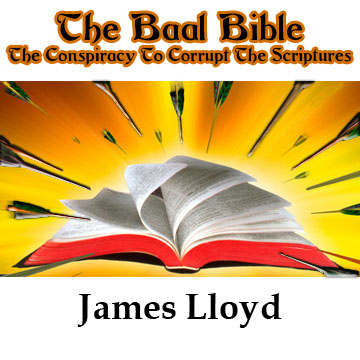
The Baal Bible DVD
James Lloyd summarizes the role of the heathen "scriptures" from Mesopotamia, which the scholars are using to leaven the genuine Word of God. In what he has dubbed the "Baal Bible," these Gentile writings speak of the Creation, the Garden episode, and the Great Flood, even as they glorify Baal. Part of a much larger conspiracy, since these Satanic records provide a distorted version of Genesis, the faulty dating of the scholars has conned Christian leaders into telling us the Baal Bible is the original, and the Hebrew Scriptures are the copy!
Details Here!
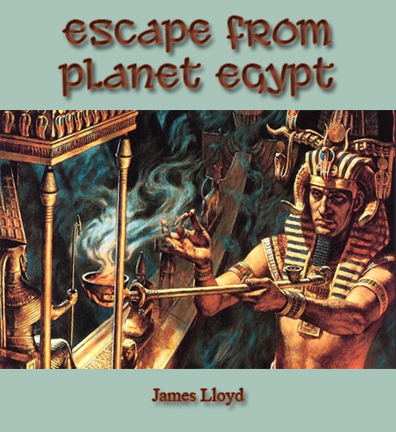
Escape From Planet Egypt
This new book is the electrifying story of how the Spirit of Antichrist has deceived the scholars into believing the Occult material from ancient Gentile writings generated the growing belief in the Divine Council heresy. James Lloyd's earlier book, Dead Men's Bones, provided a Scriptural refutation of the doctrine that claims the LORD directs a "council" of lesser gods, fallen angels, and heavenly beings.
Details Here!
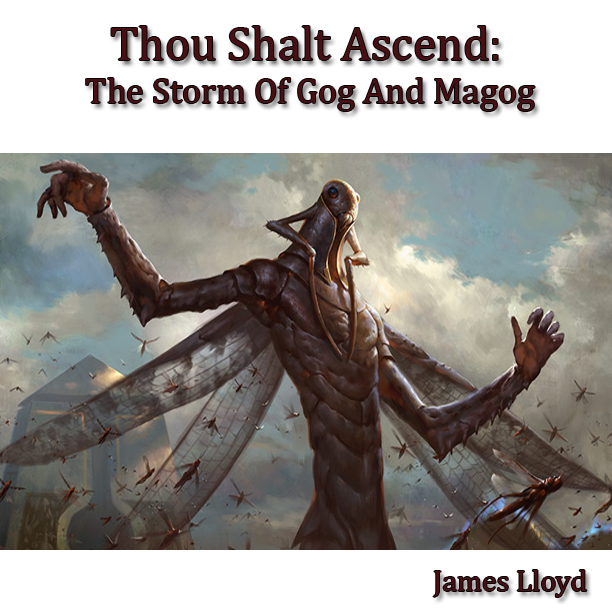
Thou Shalt Ascend:
The Storm Of Gog and Magog
Thou Shalt Ascend details the amazing reality of how the devils came to battle JESUS CHRIST at the entrance of the kingdom of God. In the new Christian Media DVD, Thou Shalt Ascend: The Storm Of Gog and Magog, James Lloyd shows how the fabled Gog and Magog Prophecies show a deeper Spiritual layer of the military conflict at the end of the age, as they actually describe the war in heaven (Revelation 12:7), when the dragon (and his Angelic Rebel Coalition) is cast out of heaven.
Details Here!

The 5th Dynasty
Related to the concept of Twin Timelines in which sequential episodes occur more than once in Scripture and History, this DVD looks at the rebellions against Moses in the Wilderness. Recognizing the failed revolt in Numbers 16, in which Korah and his followers died trying to overthrow Moses, the same thing occurred in 1649 AD as a parallel Christian rebellion tried to seize the throne of England for Christ. Known as the 5th Monarchy, James Lloyd connects this historical event with the 5th Dynasty of Israel, led by Jehu in I Kings 19:16.
Details Here!
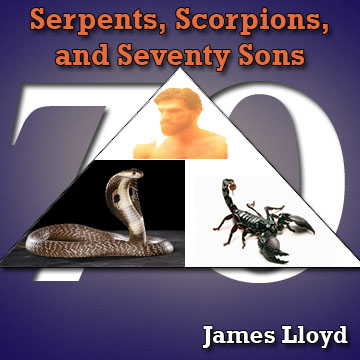
Serpents, Scorpions, And Seventy Sons
Another new DVD from James Lloyd, Serpents, Scorpions, and Seventy Sons is 2 hours of dynamite video, derived from the TV program The Apocalypse Chronicles. Using the Scriptural record, James shows how the number 70 was related to the LORD's election of Israel, as
His mediator to the Gentiles. The number is based on the presence of the children of Israel in Egypt, and this study shows how it symbolizes God's redemptive process, as Israel was chosen as "a light to the Gentiles"
(Isaiah 49:6).
Details Here!
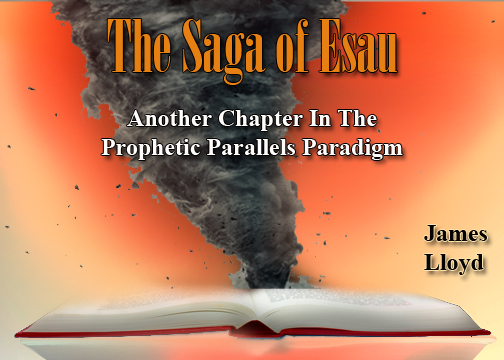
The Saga Of Esau
Distilling Esau's behavioural patterns down to two themes related to how he despised the will of the LORD, and assigned blame to innocents whom he purposed to kill, James shows how The Saga of Esau is echoed in the Edomites, King Herod, the religious council of the Jewish leadership which rejected Christ, and even Antichrist and the False Prophet.
Details Here!
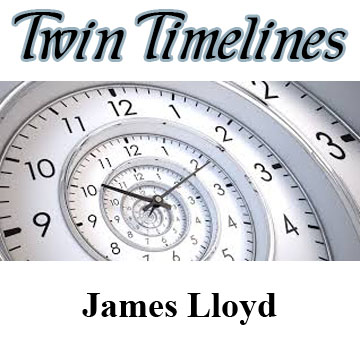
Twin Timelines DVD
Tying the various events of the presidential campaign (and the first 9 months of the Trump presidency) to what we call the Prophetic Parallels, this amazing new DVD features James detailing the entire cycle of the Twin Timelines – including predictions of where we go from here.
Details Here!
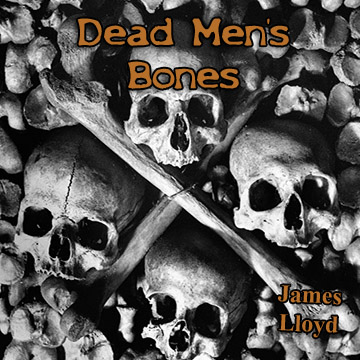
Dead Men's Bones DVD
A 2 hour DVD in which James Lloyd refutes the false doctrine of the Divine Council Paradigm. Spreading like wildfire, prophecy teachers are claiming God turned over the Gentiles (at the Tower of Babel) to a "council" of angels and the false "gods" of the Gentiles. The heresy is based on heathen manuscripts praising Baal and, incredibly, many Christian scholars are claiming certain Old Testament verses were derived from writings dedicated to Baal!
Details Here!
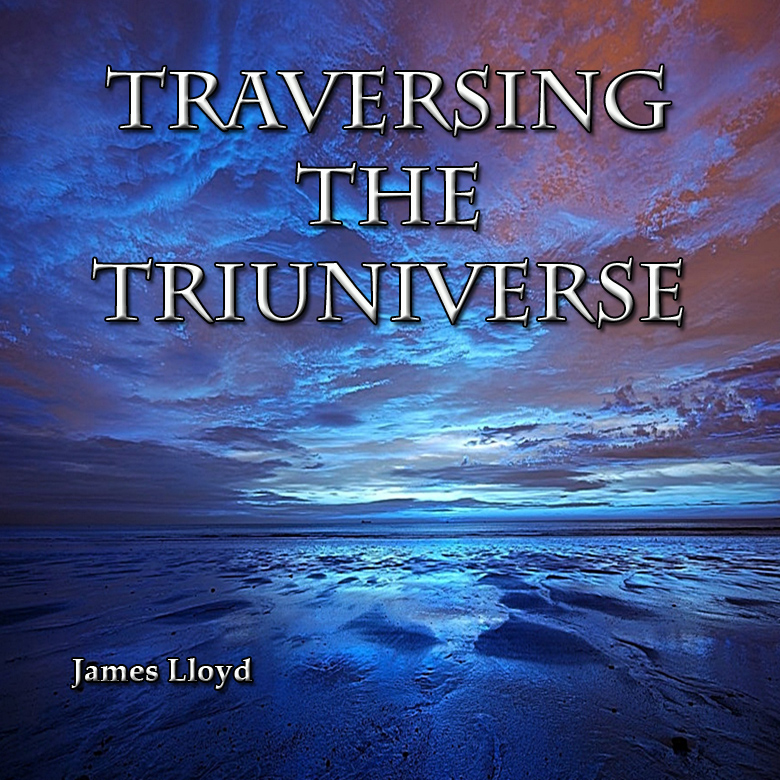
Traversing The Triuniverse
Traversing The Triuniverse is a unique new studio audio narrative from James Lloyd. Based on the article of the same name, James reviews the twin timelines concept, which has been previously examined, wherein the New Testament events parallel the Old Testament sequences. Now, in Traversing The Triuniverse, he takes the prophetic parallels a step further, showing how the Spiritual fulfillment is the substance, but the physical timeline, inhabited by the Spirit of Antichrist, which is the shadow, takes the same sequence, and reverses the roles.
Video Here!
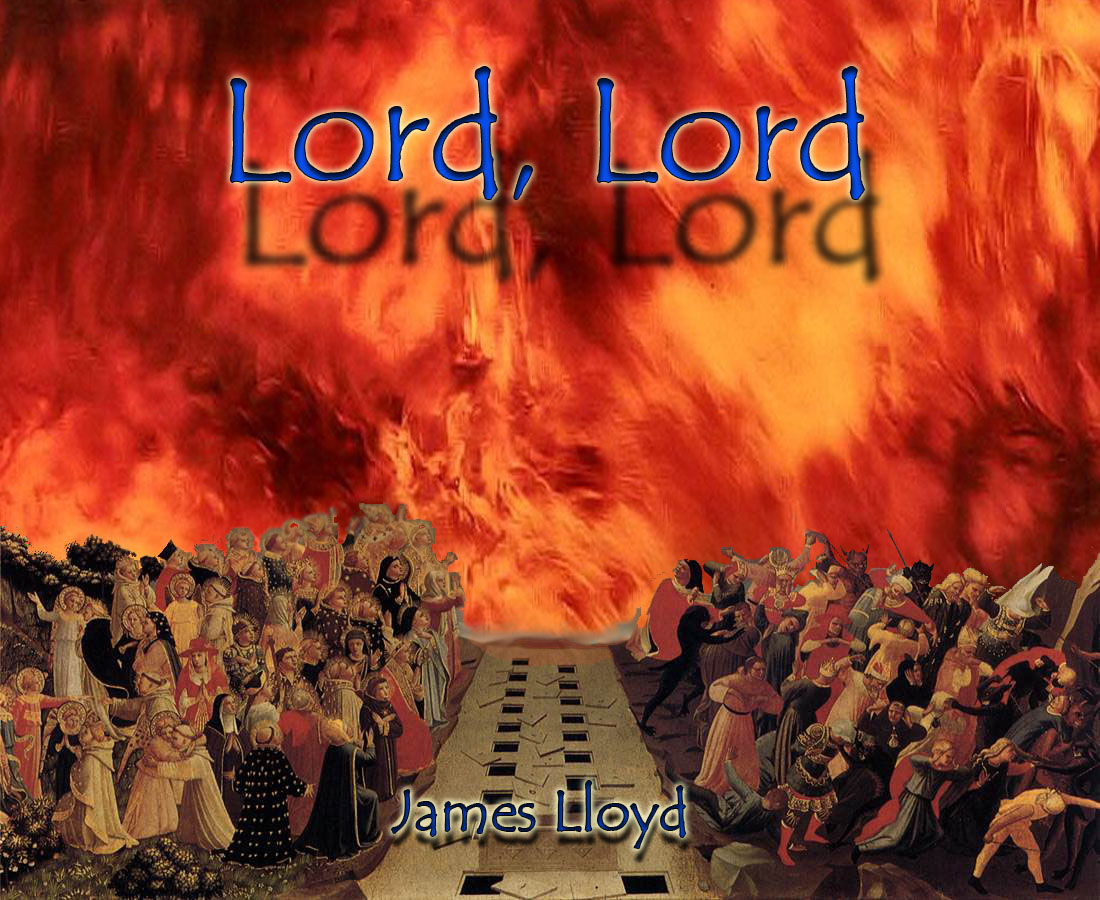
Lord, Lord
Those famous words, familiar to Christians reading the New Testament, are spoken at the time of judgment, when the Bible says MANY will be turned away. Most believers are also aware of the ominous response in which Christ tells this "many" to depart from Him, as He never knew them.
Details Here!

A Light To The Nations - Book
This book includes the astonishing prophetic metaphor where Jonah, symbolizing Old Covenant Israel, resists the call to prophesy to the Gentiles, and sails to Europe to escape the LORD's will. Swallowed up in symbolic Death – and then deposited back onto the land, where the Christ rejecting state re-emerges in 1948 as an involuntary witness, Jonah is an important figure in prophecy. Meanwhile, true Spiritual Israel is seen passing through the sea, walking in the will of the LORD, at the Exodus, even as the earthdwellers (the Egyptian host in the text) are destroyed.
Details Here!
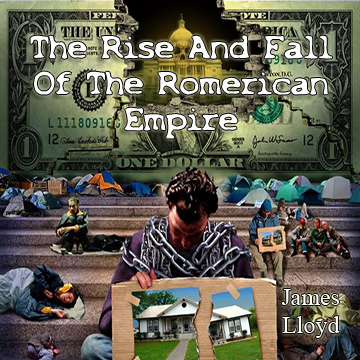
The Rise And Fall Of The Romerican Empire - Book
In this amazing book, James brings together all the components of prophecy, including the Prophetic Parallels, the 6, 7, 8 Cycle, the Beast That Was sequence, the Little Horn, and the Twin Timelines of Bible Prophecy. Integrating these modularized phenomena into a seamless whole, The Rise and Fall Of The Romerican Empire deciphers Bible Prophecy in an unprecedented fashion.
The identity of Antichrist is again revealed in this work, as well as clearly showing where we are now in the prophesied sequence of events. His largest book in 20 years, the Rise and Fall Of The Romerican Empire is the definitive work which systematically presents the truth of Remnant theology.
Details Here!
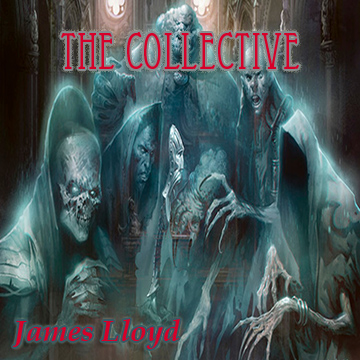
The Collective - Book
This book details how the Spiritual entity is essentially the opposite of the body of Christ. Symbolically articulated in the book of Revelation as the Image of the Beast, the Spiritual formation could also be described as the body of Antichrist. This polarity places the body of Christ on one end of the Spiritual spectrum, and the body of Antichrist on the other.
Details Here!
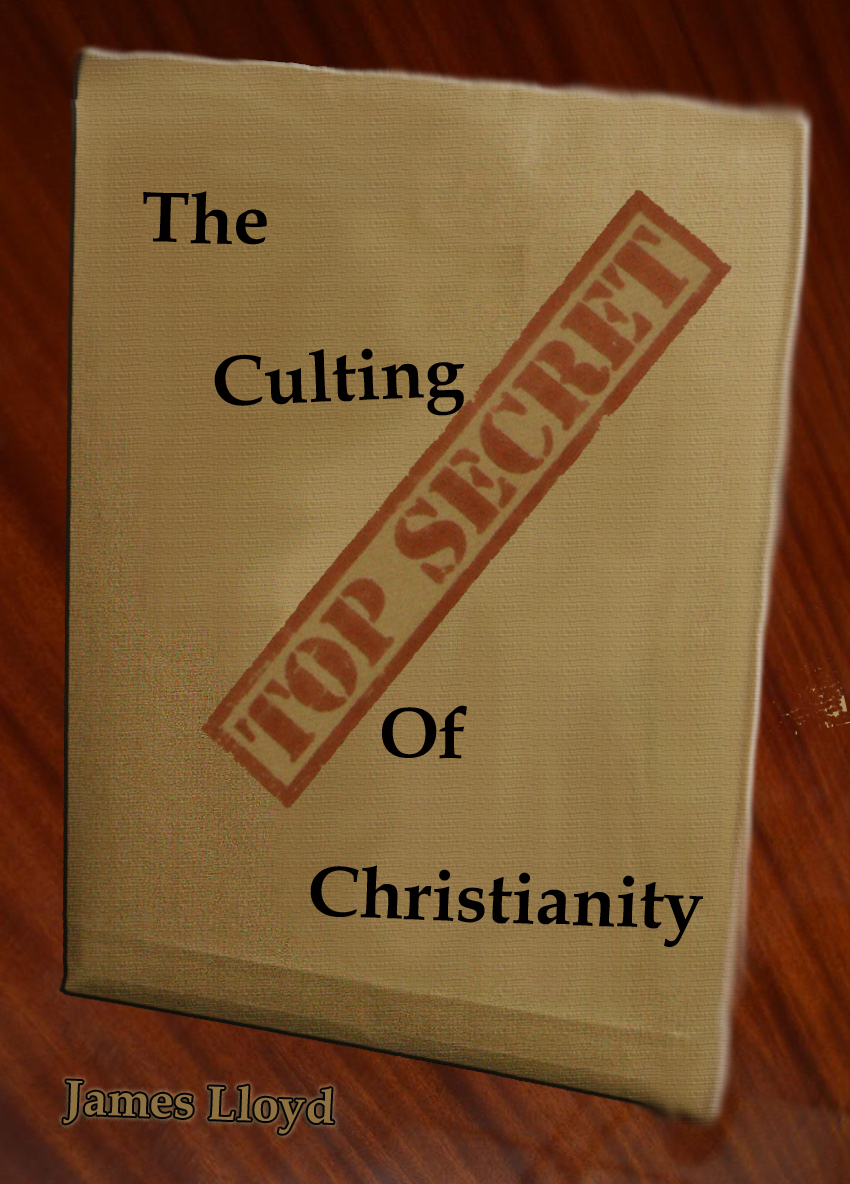
The Culting Of Christianity - Book
The Culting Of Christianity links Egyptian mysticism to leaders in the early church, as well as Jewish opponents of Christianity.
An incendiary breakthrough, James conclusively shows the idea of a pre-tribulational evacuation was written in religious documents before Jesus was born. And it doesn't stop there, as James tracks how Occultic writings influenced the development of early Christian doctrine.
Details Here!
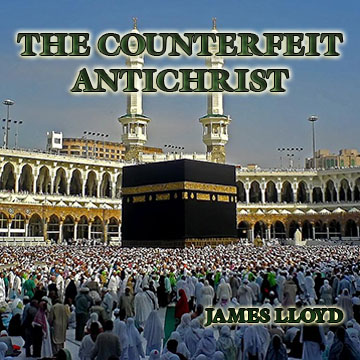
The Counterfeit Antichrist
The first new DVD from James Lloyd in several years, this 2 hour TV program examines the rapidly growing idea the appearance of "the" Antichrist will be tied to the prophesied Moslem saviour figure known as The Mahdi.
Many Christian preachers and prophecy authors are now embracing a variation on the ancient "revived Roman Empire" lie with a scenario in which the end times "Antichrist" arrives as a powerful leader from the Islamic world. Leaning on Islamic prophecy itself, in the process of presenting their case in books, television programs, and speaking engagements, these false prophets are pitching another gospel (II Corinthians 11:4) which fails to recognize the truth about the Spiritual entities – commonly identified as Antichrist and The False Prophet -- found in Revelation.
Video Here!
|
The Christian Media Ministry makes our materials available through gifts made to the ministry. When you help Christian Media, we reciprocate with the materials in which you've indicated an interest. Supporters of our ministry do so because they believe in the message the LORD has given us, and we seek to follow the Spiritual directive which Christ gave to the Apostle Peter, in that we seek to feed His sheep. This constitutes a contract, in that gifts we receive indicate a willingness to be instructed in the things of the LORD, as the supporting gifts we receive from the body of Christ allow us to continue in the mission He has called us to.
Help row the CMN boat
Click on the oar
to donate with Paypal
Online CM Fellowship
For Remnant Believers
To join
send an email to
JamesLloyd@mediachristianman.com
Volunteer Programs
- If you'd like to serve the cause of Christ, we have
Internet volunteer programs in place - just email James Lloyd at
the above address
|

















